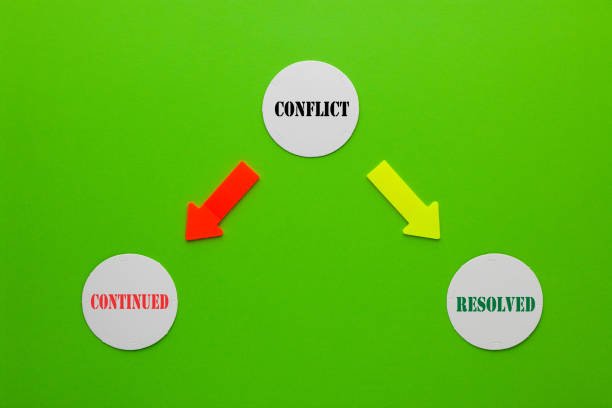Group work is an essential part of academic life, particularly in technical subjects like MATLAB programming. While collaborating on MATLAB assignments, students often face challenges related to differing opinions, work styles, and skill levels. These conflicts, if left unresolved, can hinder progress and reduce the quality of work. Understanding conflict resolution strategies is crucial for ensuring productive teamwork and successful project completion.
In this blog, we explore how students can navigate conflicts in MATLAB writing group work, maintain collaboration, and achieve their goals efficiently.
Understanding Conflicts in MATLAB Group Work
Conflicts in MATLAB group assignments often arise due to:
Differences in Skill Levels
Students in a MATLAB group may have varying levels of expertise. While some may excel in coding complex algorithms, others may struggle with basic syntax. These differences can lead to frustration, misunderstandings, and tension among team members.
Miscommunication
Clear communication is essential for collaborative coding. Misunderstandings about task allocation, project goals, or code implementation often escalate into conflicts. Regular updates and documentation can help prevent this.
Varied Work Styles
Every student has a unique approach to problem-solving. Some may prefer meticulous planning, while others might adopt a trial-and-error method. When these styles clash, disagreements over the correct approach can emerge.
Time Management Issues
Deadlines play a critical role in academic projects. Differences in commitment levels or procrastination habits can trigger conflict, especially when some members feel overburdened by responsibilities.
Common Conflict Scenarios in MATLAB Writing Groups
Understanding typical conflict scenarios can help students anticipate issues and address them effectively:
- Code Ownership Disputes: Members may argue over who contributed most to the project.
- Algorithm Selection Disagreements: Choosing between different methods for solving a problem can lead to debates.
- Documentation Conflicts: Inconsistent or incomplete documentation can frustrate team members and affect final grades.
- Division of Workload: Unequal task distribution often sparks resentment among group members.
Effective Strategies for Conflict Resolution
Successful conflict resolution in MATLAB group assignments involves proactive communication, mutual respect, and structured problem-solving.
1. Establish Clear Roles and Responsibilities
Assigning specific roles to each group member can reduce confusion and prevent overlaps. For example:
- Coder: Responsible for implementing MATLAB algorithms.
- Tester: Ensures code runs correctly and identifies bugs.
- Documenter: Prepares reports and ensures documentation is complete.
Clearly defined responsibilities minimize friction and hold each member accountable for their tasks.
2. Promote Open Communication
Regular team meetings, either in person or online, encourage discussion of challenges and progress. Using collaborative tools such as MATLAB Online, GitHub, or Slack can streamline communication and prevent misunderstandings.
3. Focus on the Problem, Not the Person
Conflicts often arise when members criticize individuals instead of addressing the issue. In MATLAB group work, it is important to focus on:
- Syntax errors
- Algorithm efficiency
- Code readability
- Documentation quality
This approach reduces personal tension and keeps the team solution-oriented.
4. Use Structured Decision-Making
When disagreements arise over coding approaches or algorithm selection, structured decision-making methods such as voting, ranking options, or consensus-building can help the team move forward efficiently.
5. Seek Mediation When Needed
If conflicts persist, involving a neutral third party, such as a tutor or course instructor, can provide guidance and help the group reach a resolution. This ensures conflicts do not escalate and affect the project timeline.
Tools to Facilitate Collaboration and Minimize Conflicts
Using the right tools can significantly reduce misunderstandings and improve team efficiency:
- Version Control Systems: Git or GitHub allows multiple team members to work on MATLAB scripts simultaneously, tracking changes and avoiding code conflicts.
- Collaboration Platforms: Tools like Microsoft Teams, Slack, or MATLAB Online support seamless communication and file sharing.
- Project Management Software: Trello or Asana can help allocate tasks, set deadlines, and track progress, ensuring transparency and accountability.
Building a Positive Team Culture
A collaborative and respectful team culture reduces the likelihood of conflicts and improves overall performance. Key practices include:
- Mutual Respect: Acknowledge each member’s expertise and contributions.
- Active Listening: Encourage all team members to voice opinions and ideas.
- Constructive Feedback: Offer feedback focused on improvement rather than criticism.
- Shared Goals: Align the team around a common objective to maintain focus and motivation.
Case Study: Successful Conflict Resolution in MATLAB Group Work
Consider a MATLAB project where the group needed to implement a complex control system simulation. Initial disagreements arose over the choice of algorithms and division of tasks. The team applied conflict resolution strategies:
- Defined clear roles for coding, testing, and documentation.
- Scheduled daily check-ins to discuss progress and obstacles.
- Focused discussions on algorithm efficiency rather than personal preferences.
- Used GitHub for version control to manage code contributions.
By implementing these strategies, the team resolved conflicts efficiently, completed the project on time, and produced a high-quality submission. For specialized guidance in such scenarios, students can benefit from Control System MATLAB Assignment Help.
Lessons Learned from MATLAB Group Conflicts
Conflict in group assignments is not inherently negative; it can foster growth if managed well. Key takeaways include:
- Conflicts highlight differences that, when addressed constructively, improve solutions.
- Effective communication is essential to prevent misunderstandings.
- Using structured approaches to decision-making reduces tension and accelerates progress.
- Collaboration tools and proper task allocation enhance transparency and accountability.
Conclusion
Conflict resolution in MATLAB writing group work is a critical skill that impacts both the quality of the project and the learning experience. By establishing clear roles, promoting open communication, focusing on issues rather than personalities, and leveraging collaboration tools, students can transform conflicts into opportunities for growth and innovation.
Adopting these strategies ensures that group projects are completed efficiently, deadlines are met, and all members benefit from a collaborative learning environment. With proper conflict resolution, MATLAB group assignments become not just a requirement but an enriching educational experience.
